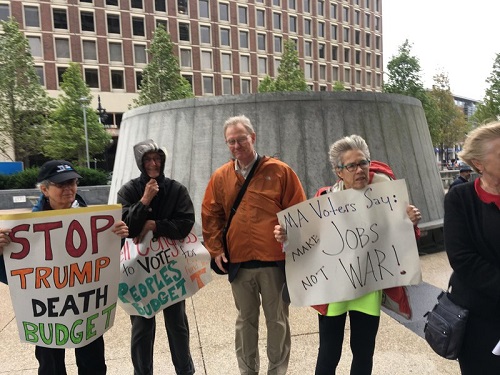Next Up: Ryan Tax Cut Plan Sparks Protests in Boston

Mike Clifford – Commonwealth News Service
BOSTON – Boston kicked off this weekend with protests of U.S. House Speaker Paul Ryan’s budget resolution.
It calls for $5.5 trillion in tax cuts and is expected to reach the House floor by early October.
Among those speaking out in opposition to the Ryan plan is Michael Kane, executive director of the Massachusetts Alliance of HUD Tenants.
Kane took part in an action on Friday at the Bank of America building to highlight how the cuts will benefit large corporations like Bank of America that Kane says have avoided paying U.S. taxes by parking billions in profits offshore.
“Speaker Ryan and Mitch McConnell are about to rush through tax breaks to billionaires and large corporations that will blow a hole in the federal budget for years to come,” he states. “And it would force cuts to Medicare, Social Security, Medicaid.”
Cutting taxes remains the GOP’s top priority, although Republican lawmakers have yet to agree on whether to offset the cuts by cutting spending or closing tax loopholes – or both. Kane is concerned that the health care debate has diverted people’s attention.
With “repeal and replace” now unlikely, he hopes more voters will focus on the impact of the GOP tax cut plan.
Kane says he also took part in a rally at JFK Plaza calling on Democrats to support a plan known as The People’s Budget.
It rejects tax cuts, and strengthens Social Security, housing assistance and education. Kane says the protests are pointing out that the current Ryan plan follows the same logic as tax cuts made by the George W. Bush administration.
“A third of the entire U.S. deficit – $20 trillion now – a third of that is directly due to the Bush tax cuts to the rich,” he states. “It did not increase revenue, it reduced revenue. The last time they pulled this stunt, the American people suffered.”
Kane says those policies also resulted in an enormous transfer of wealth to the top one-tenth of 1 percent of Americans. He predicts the Ryan plan would result in 40 to 50 percent cuts in many government programs over the next 10 years.
